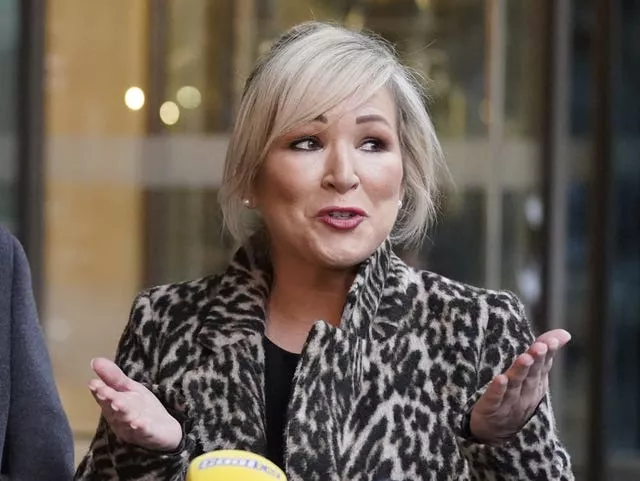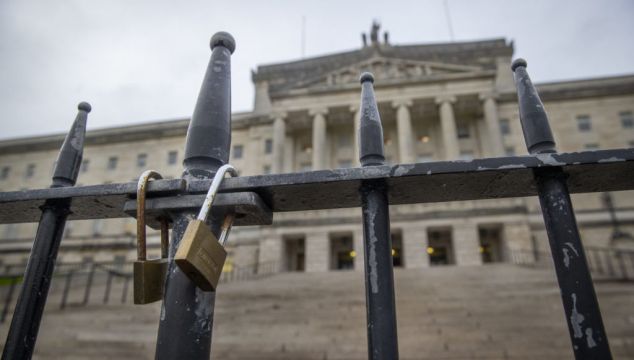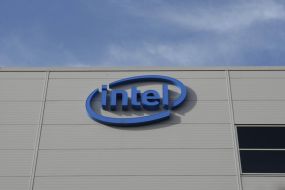Here are answers to some of the key questions surrounding the return of powersharing in Northern Ireland.
– What is happening at Stormont on Saturday?
MLAs will return to Parliament Buildings in Belfast following a political impasse which has lasted for two years. Several previous attempts to restart devolved government have failed since the 2022 Assembly elections.
However, on this occasion the DUP has stated it will support the restoration of the powersharing executive, which needs the support of the largest parties in unionism and nationalism, to operate.
This will unlock the deadlock, allowing a new speaker to be elected and clearing the path for business to resume.

Michelle O’Neill of Sinn Féin will be nominated as first minister, while the DUP will fill the role of deputy first minister. The party has not yet confirmed who it will nominate, although speculation has suggested Emma Little-Pengelly could take the position.
Then a series of ministers will be appointed using the D’Hondt mechanism, which measures party strength.
Ministers will be appointed to the departments of health, education, finance, economy, communities, infrastructure and agriculture, environment and rural affairs.
A justice minister will also be appointed on Saturday, although the rules are different for this department as the minister needs to have cross-community support.
Sinn Féin will be entitled to three ministries, the DUP and Alliance Party two and the Ulster Unionists one. The SDLP did not win enough Stormont seats to gain a ministry and will go into opposition.

– What is different this time?
At the 2022 Assembly election, Sinn Féin emerged as the largest party in Northern Ireland for the first time. This means that their Stormont leader Michelle O’Neill will make history as the first nationalist first minister in the region’s history.
The republican party has emphasised that this is a moment of significance, with party leader Mary Lou McDonald stating that their ultimate goal of Irish unity is now within “touching distance”.
However, under the rules of powersharing, the offices of first and deputy first minister, filled by the largest parties from the nationalist and unionist communities, have equal authority. All decisions are taken on a joint basis.
– What happens after Saturday?
The business of governing Northern Ireland will begin. A first meeting of the new powersharing executive will take place early next week followed by the first plenary session of the new Assembly. Party leaders from executive parties have already met to discuss the immediate priorities to be addressed.
Ministers will have bulging in-trays. Long periods without devolved government, combined with a series of budget crises in Stormont departments, have had a damaging impact on public services.
As part of the talks process which led to Stormont’s return, the Government offered a £3.3 billion (€3,8 billion) package to stabilise Northern Ireland’s finances, including £600 million to settle public sector pay claims in the region.
Ministers will be expected to begin making decisions quickly to alleviate some of the pressures facing public services.

– Why has there not been devolved government for the past two years?
During the Brexit divorce talks, former prime minister Boris Johnson negotiated the Northern Ireland Protocol with the EU in order to ensure the continued free movement of goods on the island of Ireland.
However, this led to the requirement for checks on goods travelling between Great Britain and Northern Ireland and was deeply unpopular with unionists, who described it as an Irish Sea border.
After feeling that the Government was not responding fast enough to his concerns, DUP leader Jeffrey Donaldson collapsed the Stormont powersharing institutions when he withdrew Paul Givan as first minister two years ago.
In response, British Prime Minister Rishi Sunak negotiated the Windsor Framework with the EU, introducing new rules on the movement of goods and a veto for the implementation of EU law in Northern Ireland.
However, Mr Donaldson insisted this did not go far enough, leading to months of protracted negotiations that have culminated in the command paper Safeguarding The Union, published by the Government this week.

– Why has the DUP agreed to the deal?
The DUP leader has insisted the new arrangements have removed the Irish Sea trading border and restored Northern Ireland’s place within the UK internal market.
The deal will see the end of routine post-Brexit checks on goods shipped from Great Britain to final destinations in Northern Ireland, as well as a series of measures aimed at providing assurances around Northern Ireland’s constitutional position within the United Kingdom.
The DUP leader says this is the best deal that could be achieved for the people of Northern Ireland and has persuaded him to end his boycott of the powersharing institutions.
Mr Donaldson has long argued in favour of restoring devolved government, providing his concerns over post-Brexit trade and sovereignty were addressed.
– Does this represent a major change to the trading arrangements agreed with Brussels?
It depends who you listen to.
He says his party has delivered “fundamental change” to the Windsor Framework by ending routine checks on goods moving from Great Britain to, and staying in, Northern Ireland.
Downing Street, however, has insisted the measures unveiled on Wednesday and approved by MPs on Thursday do not require specific EU sign-off, characterising them instead as “operational” changes to the framework, without altering the “fundamentals” of the bilateral deal.

– Who is opposed to the DUP leader’s move?
Not everyone in the DUP supports accepting the arrangements that will lead to a return to powersharing.
A meeting of the party’s ruling executive, where he presented the proposals to members, lasted for more than five hours on Monday night.
He was ultimately able to secure the backing of the executive, insisting the margin of support was “decisive”, and the endorsement of the majority of his 12 party officers.
However, just hours after the command paper was published on Wednesday, senior DUP MP Sammy Wilson launched a scathing broadside against the Government in the House of Commons in a clear sign of the differing opinions at the highest levels of the party.
The arch-Brexiteer claimed the ongoing application of EU law in Northern Ireland was the result of a “spineless, weak-kneed, Brexit-betraying Government, refusing to take on the EU and its interference in Northern Ireland”.
On top of internal tensions, Mr Donaldson faces criticism from some in the wider unionist and loyalist community.
On Thursday night, TUV leader Jim Allister and a loyalist activist addressed a meeting of unionists and loyalists opposed to the deal. They have insisted the Irish Sea trading border has not been removed.
On Friday, the pair revealed a legal opinion they had commissioned from Northern Ireland’s former attorney general John Larkin.
Key among the questions he was asked was whether the plan set out in the Safeguarding The Union command paper would restore the 1800 Acts of Union; whether they removed a customs and regulatory border in the Irish Sea; and do they ensure “zero checks and zero paperwork” for GB goods destined for Northern Ireland.
Mr Larkin argued that they achieved none of those objectives.
However, the DUP leader has rejected the findings of the legal opinion, stating that he “fundamentally disagreed” with it.







